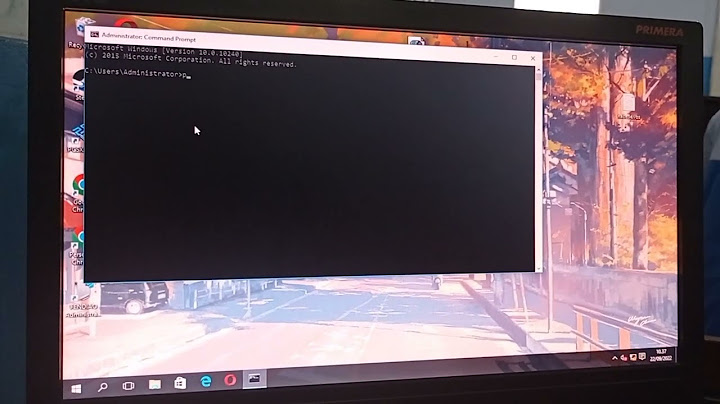Show #!/usr/bin/env bash sudo apt-get --yes update # install mysql #echo "******* Installing MySql *******" sudo apt-get --yes --force-yes install mysql-server sudo apt-get --yes --force-yes install mysql-client sudo apt-get --yes --force-yes install python-mysqldb sudo apt-get --yes --force-yes install libmysqlclient-dev echo "******* Create MySQL Databases and Users *******" mysql -uroot -proot -e "create database testdb" mysql -uroot -proot -e "create user 'testuser'@'%' identified by 'testuser'" mysql -uroot -proot -e "create user 'testuser'@'localhost' identified by 'testuser'" mysql -uroot -proot -e "GRANT ALL PRIVILEGES ON testdb.* TO 'testuser'@'%'" mysql -uroot -proot -e "GRANT ALL PRIVILEGES ON testdb.* TO 'testuser'@'localhost'" mysql -uroot -proot -e "GRANT FILE ON *.* TO 'testuser'@'%'" mysql -uroot -proot -e "GRANT FILE ON *.* TO 'testuser'@'localhost'" # now created as a model. mysql -uroot -proot -e "CREATE TABLE testdb.sensor_values_warehouse (id int(11) NOT NULL AUTO_INCREMENT, orig_id int(11) NOT NULL, value varchar(128) DEFAULT NULL, raw_value varchar(128) DEFAULT NULL, timestamp datetime DEFAULT NULL, sensor_id int(11) DEFAULT NULL, PRIMARY KEY (id), KEY sensor_id (sensor_id) ) ENGINE=InnoDB AUTO_INCREMENT=1 DEFAULT CHARSET=latin1;" sudo mv /etc/mysql/my.cnf /etc/mysql/my.cnf.orig sudo cp ./my.cnf /etc/mysql/my.cnf # --------------- Uncomment the lines below and put into file: my.cfg ----------------------------------------------- ## ## The MySQL database server configuration file. ## ## You can copy this to one of: ## - "/etc/mysql/my.cnf" to set global options, ## - "~/.my.cnf" to set user-specific options. ## ## One can use all long options that the program supports. ## Run program with --help to get a list of available options and with ## --print-defaults to see which it would actually understand and use. ## ## For explanations see ## http://dev.mysql.com/doc/mysql/en/server-system-variables.html # ## This will be passed to all mysql clients ## It has been reported that passwords should be enclosed with ticks/quotes ## escpecially if they contain "#" chars... ## Remember to edit /etc/mysql/debian.cnf when changing the socket location. #[client] #port = 3306 #socket = /var/run/mysqld/mysqld.sock # ## Here is entries for some specific programs ## The following values assume you have at least 32M ram # ## This was formally known as [safe_mysqld]. Both versions are currently parsed. #[mysqld_safe] #socket = /var/run/mysqld/mysqld.sock #nice = 0 # #[mysqld] ## ## * Basic Settings ## #user = mysql #pid-file = /var/run/mysqld/mysqld.pid #socket = /var/run/mysqld/mysqld.sock #port = 3306 #basedir = /usr #datadir = /var/lib/mysql #tmpdir = /tmp #lc-messages-dir = /usr/share/mysql #skip-external-locking #transaction-isolation = READ-UNCOMMITTED ## ## Instead of skip-networking the default is now to listen only on ## localhost which is more compatible and is not less secure. #bind-address = 0.0.0.0 ## ## * Fine Tuning ## #key_buffer = 16M #max_allowed_packet = 16M #thread_stack = 192K #thread_cache_size = 8 ## This replaces the startup script and checks MyISAM tables if needed ## the first time they are touched #myisam-recover = BACKUP ##max_connections = 100 ##table_cache = 64 ##thread_concurrency = 10 ## ## * Query Cache Configuration ## #query_cache_limit = 1M #query_cache_size = 16M ## ## * Logging and Replication ## ## Both location gets rotated by the cronjob. ## Be aware that this log type is a performance killer. ## As of 5.1 you can enable the log at runtime! ##general_log_file = /var/log/mysql/mysql.log ##general_log = 1 ## ## Error logging goes to syslog due to /etc/mysql/conf.d/mysqld_safe_syslog.cnf. ## ## Here you can see queries with especially long duration ##log_slow_queries = /var/log/mysql/mysql-slow.log ##long_query_time = 2 ##log-queries-not-using-indexes ## ## The following can be used as easy to replay backup logs or for replication. ## note: if you are setting up a replication slave, see README.Debian about ## other settings you may need to change. ##server-id = 1 ##log_bin = /var/log/mysql/mysql-bin.log #expire_logs_days = 10 #max_binlog_size = 100M ##binlog_do_db = include_database_name ##binlog_ignore_db = include_database_name ## ## * InnoDB ## ## InnoDB is enabled by default with a 10MB datafile in /var/lib/mysql/. ## Read the manual for more InnoDB related options. There are many! ## ## * Security Features ## ## Read the manual, too, if you want chroot! ## chroot = /var/lib/mysql/ ## ## For generating SSL certificates I recommend the OpenSSL GUI "tinyca". ## ## ssl-ca=/etc/mysql/cacert.pem ## ssl-cert=/etc/mysql/server-cert.pem ## ssl-key=/etc/mysql/server-key.pem # # # #[mysqldump] #quick #quote-names #max_allowed_packet = 16M # #[mysql] ##no-auto-rehash # faster start of mysql but no tab completition # #[isamchk] #key_buffer = 16M # ## ## * IMPORTANT: Additional settings that can override those from this file! ## The files must end with '.cnf', otherwise they'll be ignored. ## #!includedir /etc/mysql/conf.d/ How install MySQL install?The process for installing MySQL from a ZIP Archive package is as follows:. Extract the main archive to the desired install directory. ... . Create an option file.. Choose a MySQL server type.. Initialize MySQL.. Start the MySQL server.. Secure the default user accounts.. How do I install MySQL from the command line?To install MySQL Shell binaries: Unzip the content of the Zip file to the MySQL products directory, for example C:\Program Files\MySQL\ . To be able to start MySQL Shell from a command prompt add the bin directory C:\Program Files\MySQL\mysql-shell-1.0. 8-rc-windows-x86-64bit\bin to the PATH system variable.
Can I use Raspberry Pi as a database server?If you need to access a database from Raspberry Pi, you can either use one that is available for this platform (for example, MySQL / MariaDB, PostgreSQL and MongoDB) or access one remotely. Easysoft ODBC drivers enable your Pi applications to connect to both local and remote databases.
How do I install MySQL on Linux?Installing MySQL Shell with the MySQL APT Repository. Update package information for the MySQL APT repository: sudo apt-get update.. Update the MySQL APT repository configuration package with the following command: sudo apt-get install mysql-apt-config. ... . Install MySQL Shell with this command: sudo apt-get install mysql-shell.. |

Pos Terkait
Periklanan
BERITA TERKINI
Toplist Popular
#1
#2
#4
#5
#6
#7
Top 8 apa itu benedict dan biuret? 2022
1 years ago#8
#9
#10
Top 6 apa itu self pick up grabfood? 2022
1 years agoPeriklanan
Terpopuler
Periklanan
Tentang Kami
Dukungan

Copyright © 2024 toptenid.com Inc.


















